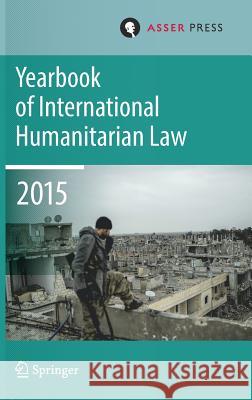Yearbook of International Humanitarian Law Volume 18, 2015 » książka
topmenu
Yearbook of International Humanitarian Law Volume 18, 2015
ISBN-13: 9789462651401 / Angielski / Twarda / 2016 / 312 str.
Kategorie:
Kategorie BISAC:
Wydawca:
T.M.C. Asser Press
Seria wydawnicza:
Język:
Angielski
ISBN-13:
9789462651401
Rok wydania:
2016
Wydanie:
2016
Numer serii:
000209240
Ilość stron:
312
Waga:
0.62 kg
Wymiary:
23.39 x 15.6 x 1.91
Oprawa:
Twarda
Wolumenów:
01
Dodatkowe informacje:
Wydanie ilustrowane











